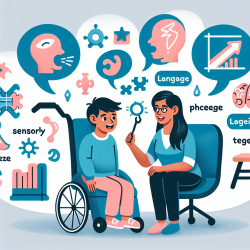Unlocking the Power of Interprofessional Collaboration in Therapy
As a practitioner in the field of therapy, you understand the importance of collaboration in providing the best care for your clients. The Interprofessional Collaborative Relationship-Building Model (ICRB) offers a transformative approach to enhancing your skills and improving patient outcomes. This model, as explored in the research article "Interprofessional Collaborative Relationship-Building Model in Action in Primary Care: A Secondary Analysis," provides valuable insights into the stages of developing interprofessional relationships.
The ICRB Model: A Roadmap for Success
The ICRB model outlines four key stages in the development of interprofessional relationships:
- Looking for Help: Recognizing the need for collaboration and identifying team members who can fulfill those needs.
- Initiating Co-Location: Increasing opportunities for face-to-face communication by working in the same physical location.
- Fitting-In: Sharing skills and knowledge to meet the needs identified in the first stage, thereby enhancing patient and team outcomes.
- Growing Reciprocity: Appreciating the diverse perspectives of team members and understanding their contributions to quality patient care.
Applying the ICRB Model to Enhance Your Practice
Implementing the ICRB model in your practice can lead to significant improvements in patient care and team dynamics. Here are some practical steps to get started:
- Foster Open Communication: Encourage formal and informal communication strategies within your team to build trust and clarity.
- Focus on Patient-Centered Care: Keep the patient's needs at the forefront of all collaborative efforts, ensuring that their care is holistic and comprehensive.
- Embrace Co-Location: Whenever possible, work in close proximity with your team to facilitate spontaneous, face-to-face interactions that can lead to more effective collaboration.
- Develop Shared Leadership: Strive for a team dynamic where leadership roles are shared, enhancing engagement and satisfaction among team members.
Why You Should Consider Further Research
The ICRB model not only provides a framework for improving interprofessional relationships but also highlights areas for further research and clinical focus. Collaborative leadership, in particular, is a worthy goal that can enhance patient care quality and team satisfaction.
By engaging in further research, you can contribute to the growing body of evidence supporting interprofessional collaboration and help refine models like the ICRB for even greater impact.
To read the original research paper, please follow this link: Interprofessional Collaborative Relationship-Building Model in Action in Primary Care: A Secondary Analysis.










